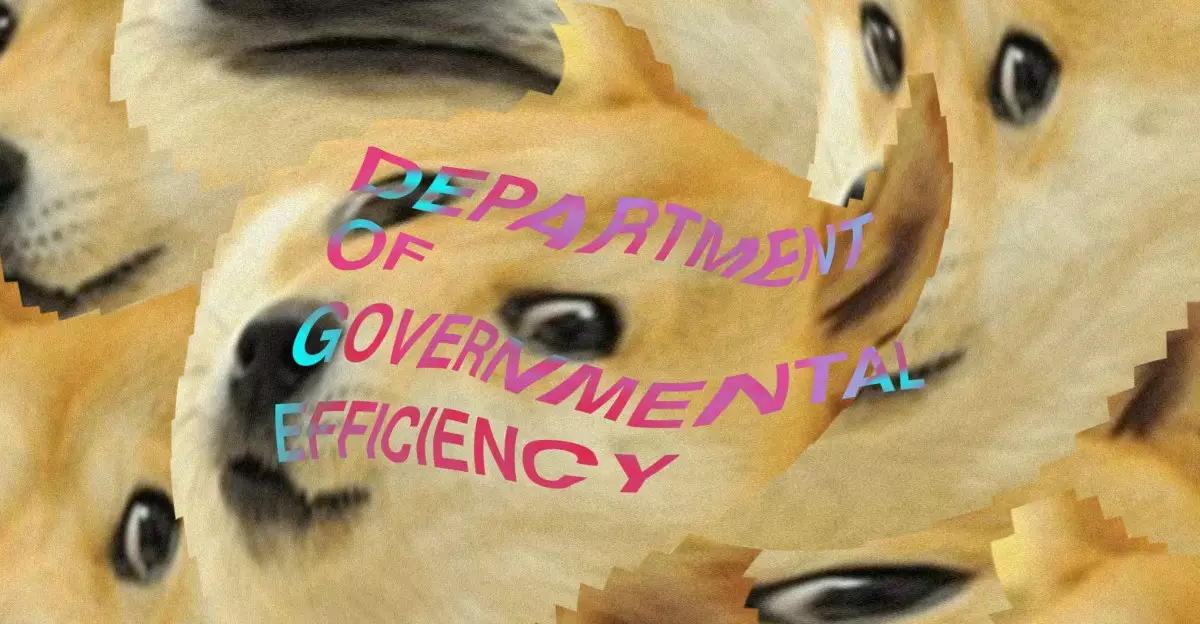In the tumultuous intersection of technology and government, few incidents capture public interest and concern like the case of Marko Elez. A mere 25 years old, Elez’s brief career as a staffer in the Department of Government Efficiency has raised significant alarm bells regarding security protocols within the U.S. Treasury Department. This scenario underscores a pressing need for stringent oversight mechanisms, especially in environments that demand confidentiality and trust.
Elez reportedly held significant sway over sensitive payment systems within the Treasury, with the ability to rewrite code. His position not only granted him unprecedented access but also placed him in a critical role that could pose serious risks if misused. The situation became precarious when The Wall Street Journal began probing into his background, revealing alarming connections to a now-deleted social media account that propagated racist and eugenic ideologies. This incident raises crucial questions about the rigorousness of background checks for individuals placed in sensitive government roles. The shocking ease with which Elez navigated this system signals a disturbing flaw in the oversight processes meant to safeguard against individuals with extremist views acquiring influential positions.
Following the controversy, Elon Musk, the owner of X (formerly Twitter), announced plans to reinstate Elez despite the uproar concerning his public statements. A polled majority of users on the platform favored his reemployment, prompting discussions about forgiveness in the face of public missteps. Prominent figures like Vice President JD Vance echoed sentiments suggesting that youthful indiscretions should not dictate the trajectory of an individual’s career. This raises an essential debate: To what extent should forgiveness factor into responses to harmful ideologies, especially when those ideologies clash with societal values and responsibilities?
The implications of this conviction extend far beyond the individual case of Elez. The controversy invites scrutiny of the broader cultural and ethical standards within governmental spaces, particularly in positions wielding substantial power. The leniency shown to Elez could foster an environment where similar ideologies are tolerated, fundamentally jeopardizing the integrity of sensitive governmental operations. Moreover, reinstating Elez might send the message that extremist views can be overlooked if public opinion tilts towards absolution. Such dynamics could further entrench problematic ideologies within public service sectors.
The Marko Elez case emphasizes the imperative for reforms that address the vetting processes within government agencies. Establishing clear guidelines around the appointment and monitoring of staff engaged in sensitive roles can help mitigate the potential for risk. Institutions must adopt a proactive approach to ensure that those managing key systems align with democratic values. In a political landscape where technology increasingly intertwines with governance, the onus lies on both public and private sectors to cultivate safer, more equitable environments devoid of extremist ideologies.
As the controversy continues to develop, it becomes evident that managing the balance between forgiveness and the accountability of public figures requires nuanced discussions. The case of Marko Elez not only highlights flaws in our existing systems but also serves as a stark reminder of the vigilance required to preserve integrity and security in government operations. The ongoing vigilance, critical assessment of access, and unwavering commitment to ethical governance must prevail as foundational tenets of our collective responsibility.


Leave a Reply